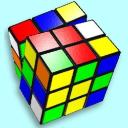Yahoo Answers is shutting down on May 4th, 2021 (Eastern Time) and beginning April 20th, 2021 (Eastern Time) the Yahoo Answers website will be in read-only mode. There will be no changes to other Yahoo properties or services, or your Yahoo account. You can find more information about the Yahoo Answers shutdown and how to download your data on this help page.
Trending News
What number follows 0.9999999... if you repeat the nines to infinity? Is it the same as one or less than one?
15 Answers
- PuzzlingLv 72 years ago
Let me ask you a question?
Is 0.333333... equal to 1/3 or is it *almost* 1/3?
Almost everyone can agree if you divide out 1/3, you get 0.333333... with an unending sequence of threes. The decimal representation of 1/3 is 0.333333... and both are equivalent. Very few people say that 0.333333... is *almost* 1/3. If they do, they are wrong.
However, when it comes to 0.999999... our intuition gets messed up and we can't make the same assertion. People start arguing that the value isn't exactly 1; that it's just a little smaller than 1 or *almost* 1. So why the different reasoning?
The fact is, just like 0.333333... is exactly 1/3, it's also true that 0.999999... is exactly 1.
0.333333... + 0.333333... + 0.333333... = 1/3 + 1/3 + 1/3
0.999999... = 1
Another pattern that might help; look at the fractions 1/9, 2/9, etc. written as decimals:
0.1111... = 1/9
0.2222... = 2/9
0.3333... = 3/9 (or 1/3)
0.4444... = 4/9
0.5555... = 5/9
0.6666... = 6/9 (or 2/3)
0.7777... = 7/9
0.8888... = 8/9
0.9999... = 9/9 (or 1)
Answer:
The value of 0.9999999... is exactly 1. You can think or imply that it is the number "just before 1" but it isn't.
Source(s): https://en.wikipedia.org/wiki/0.999... - 2 years ago
I should probably start my answer with a question myself. What do you mean by "repeat the nines to infinity"? I understand the number 0.99999... where there is a well-defined finite number of nines, but infinity is NOT a number. Therefore, the expression 0.99999 has no meaning unless we give it one. To define what the expression 0.999...inf (or equivalently 0.999r) means, we define the sequence a_n as follows:
a_1 = 0.9, a_2 = 0.99, a_3 = 0.999, ... or equivalently a_n = 0.999 ... n nines ... 999
and we DEFINE 0.999r as the LIMIT of this sequence, where the limit of a sequence (assuming it has a limit) is a number L such that we can get a_n arbitrarily close to L simply by choosing a sufficiently large value for n. In the case of 0.999r, we see that no member of the sequence a_n equals 1, but we can get a number as close to 1 as we like simply by writing enough nines in the number 0.99999... Therefore, we can say that the limit of the a_n sequence is EQUAL to 1, or equivalently 0.999r = 1.
- 2 years ago
It's the same as one. I can prove it.
Let n = .99999999999...
10n = 9.99999999999...
-n = -.99999999999...
____________________
9n = 9
n = 1
The next number after it is 2.
- Φ² = Φ+1Lv 72 years ago
¹∕₉ = 0.1111111... which I will write as 0.1ᵣ, meaning the last digit repeats indefinitely.
0.9999999... = 0.9ᵣ = 9 × 0.1ᵣ = 9 × ¹∕₉ = 1
- How do you think about the answers? You can sign in to vote the answer.
- geezerLv 72 years ago
EVENTUALLY
0.99999999999999999... will be so close to 1 that it will be 1
So .. to answer your question
If 0.9999999999999999... is 1
the number that ''follows'' 0.9999999999999999 (1) ... is 2
- TomVLv 72 years ago
0.999999... is exactly equal to 1.0000...
This is a very well known (but very non-intuitive) fact of mathematics. There are any number of videos on YouTube demonstrating the proof of that statement. Google "0.9999 YouTube" for a representative listing.
- billrussell42Lv 72 years ago
that is the same as 1.
If by number following, you mean next integer, that is 2







